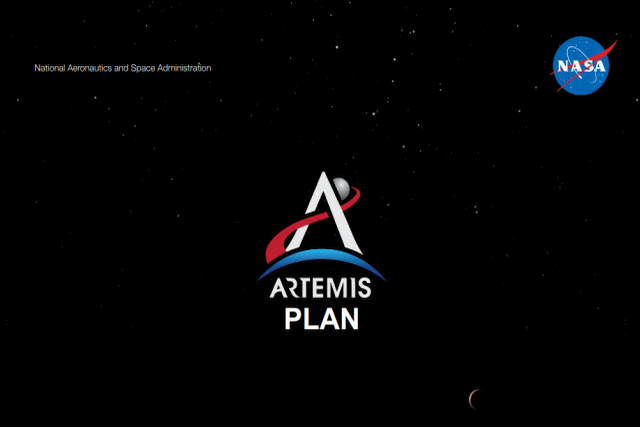Orbiting the Moon
This autumn NASA launched Artemis 1, a first mission to return humans to the Moon

Corina Cristea, 23.12.2022, 14:00
Taking advantage of a window of opportunity, this
autumn NASA launched Artemis 1-the first in a series of missions of the
American Space Agency to return humans to the Moon. The uncrewed flight took
place on November 16, when NASA’s giant rocket SLS (Space Launch System)
launched the Orion capsule, after a number of failed attempts. On November 21, after traveling nearly 400,000 km, the
capsule reached 128 km from the Moon surface. Orion returned to Earth, landing
off the Mexican island of Guadalupe.
Artemis targeted several goals: to test Orion’s
capacity to return safely from the Moon and to operate in deep space, where
temperatures are considerably lower than on Earth’s orbit, and to successfully retrieve
the rocket. The writer and science journalist Alexandru
Mironov spoke to Radio Romania about the importance of this mission:
Alexandru Mironov: Half a century after the last step taken there, mankind once again
attempts to conquer the Moon. The Artemis programme is this attempt of
reassuring ourselves that we are able to launch a spacecraft strong enough to complete
the Earth-Moon route. The spacecraft left the Earth, orbited it twice to build
speed and then left, reached the Moon orbit and went around it with high-tech
mannequins on board outfitted with all kinds of sensors. Twenty-six days later,
it returned from this journey.
The second stage of the Artemis
programme, already in preparation with NASA, will also have a human crew:
Alexandru Mironov: Artemis 2 will take place next year. It will
cover the exact route of Artemis 1 and will have 4 people on board, including a
woman. They will orbit the Moon-and when I speak about that I always imagine
the frustration they will feel when going around the Moon, two steps from it,
seeing the Earth rising behind it but not being allowed to set foot on the Moon
itself. This is the second stage of the planetary project to return to the
Moon. The 3rd stage should take place in two years’ time, I believe
it will only be three years from now, when we will finally touch the Moon. The verb
to Moon will then become part of humans’ vocabulary. Why will this happen? Because
we are no longer going there for an experiment, as it happened with the Apollo programme.
Instead, we are going to conquer the Moon, in the sense of using the countless
minerals that we need, maybe build houses in the Moon grottos, maybe use the
water in the glaciers under the Moon’s surface. So a lot of elements encourage
us to say that mankind will gain a lot from this. In fact, there will be a
gateway, a satellite that I see as some sort of planetary building site, because
this is where spaceships will be built that will require very little energy to
launch to Mars, our next step. Orion, which completed this route, launched from
a giant rocket. The SLS belongs to NASA, and the next stage will also use NASA
spacecraft, but then the government will work with private operators, like Elon
Musk, and we will very likely see a regular commute to and from the Moon.
Orion had been in space before, in 2014, launched from
a Delta IV rocket. At that time, it orbited the Earth twice, most importantly
in order to test the heat shield’s performance at re-entry. This time around,
the temperature was a lot higher, with the capsule reaching a speed several
times the speed of sound and re-entering the Earth’s atmosphere at 40,000 km per hour. Special attention was again paid
to Orion’s heat shield, which had to withstand temperatures of 2,800 degrees
Celsius, nearly half of the temperature on the Sun’s surface.
Alexandru Mironov: Because of air friction, the temperature
reaches extremely high levels. There are special materials designed for this. Experts
are trying to solve problems that previous spacecraft failed to solve, hence
the two major accidents. But I believe that gradually, the NASA personnel,
astrophysicists and engineers will get on top of this. We are on the right
path, to the Moon and beyond.
Upon re-entry, high-performance
cameras managed to catch Orion, and the spectacular image of its 11
parachutes opening gradually proved that it all had gone according to plan. The
mission also marked a record: on November 28, Orion moved beyond the distance
travelled in 1970 by Apollo 13, and reached 430,000 km, the most distant point
ever reached by a spacecraft able to carry humans on board. (AMP)






























